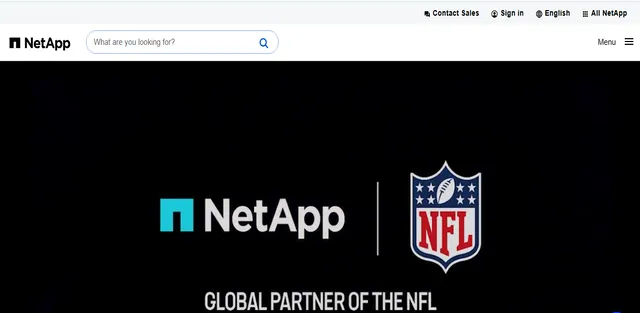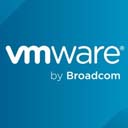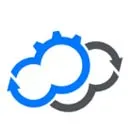
NetApp is an American company based in San Jose, California, focused on intelligent data infrastructure. It helps businesses manage, store, and protect data across on-premises, cloud, and hybrid environments, serving industries like healthcare, finance, and technology. Founded in 1992, it’s known for its ONTAP operating system and partnerships, such as with the NFL for data-driven football innovations.
What is NetApp?
NetApp, Inc. is a data infrastructure company. NetApp offers unified data storage, integrated data services, and cloud operations (CloudOps) solutions to enterprise customers, helping them manage, protect, and optimize their data across on-premises, cloud, and hybrid environments. NetApp serves a wide range of industries, including energy, financial services, internet, government, high technology, healthcare services, life sciences, manufacturing, entertainment, animation, media, video postproduction, and telecommunications.
Key Features of NetApp
NetApp's key features include the following:
- Unified Data Storage: Combines file, block, and object storage for seamless data management.
- AI-Optimized Data Management: Supports AI pipelines with secure, scalable data, including versioning for LLMs.
- Cloud Integration: Seamlessly integrates with AWS, Azure, and Google Cloud for hybrid cloud flexibility.
- Cyber Resilience: Real-time ransomware detection, anomaly monitoring, and rapid recovery.
- BlueXP Management: Single-pane console for provisioning, orchestration, and management across clouds.
- All-Flash Arrays (AFF/ASA): High-performance storage for mission-critical workloads like VMware, Oracle, and SAP.
- Data Infrastructure Insights: Full-stack visibility, AIOps, and analytics for performance optimization.
- Keystone Storage-as-a-Service: Subscription-based storage for on-premises and cloud environments.
- Auto-Tiering and Deduplication: Reduces storage costs through compression and thin provisioning.
- AI Pod Solutions: Certified infrastructure for NVIDIA DGX BasePOD and SuperPOD, optimized for AI.
Use Cases of NetApp
NetApp's solutions are designed for a variety of use cases across industries:
- Enterprise Productivity: Enhances operational efficiency by streamlining data management.
- Performance and Profitability: Optimizes data storage and access for better business outcomes.
- Investment Protection: Ensures long-term value from data infrastructure investments, particularly in hybrid cloud environments.
- Enhanced Asset Utilization: Maximizes the use of existing IT resources, as noted in customer stories across energy and technology sectors.
- Data Management in Hybrid Environments: Manages data across on-premises, cloud, and hybrid setups, suitable for industries like financial services and healthcare.
- AI Innovation: Provides secure, scalable data for AI workloads, with NetApp's focus on AI-ready data infrastructure.
- Cyber Resilience: Protects against ransomware and other cyber threats, with solutions like ONTAP data security.
Pros and Cons of NetApp
Pros:
- Strong Market Position: NetApp is a leader in the data storage and management industry.
- Comprehensive Product Portfolio: Offers a wide range of solutions, from all-flash storage to cloud services.
- Innovation: Continuously develops cutting-edge technologies.
- Global Reach: Serves customers across various industries worldwide, with operations in the Americas, EMEA, and Asia-Pacific.
Cons:
- Complexity: Managing a broad range of products and services can be challenging for some customers.
- Competition: Faces stiff competition from other industry giants like Dell, HPE, and Huawei.
- Pricing: Higher-tier plans can be costly.
- Limited GUI Features: The web GUI lacks some advanced settings.
Alternatives to NetApp
Here are some notable alternatives to NetApp, each offering similar data infrastructure solutions:
- Dell EMC: Offers storage and data management solutions.
- Hewlett Packard Enterprise (HPE): Offers storage, cloud, and AI solutions.
- Huawei: Known for its cloud and storage solutions.
- Pure Storage: Specializes in all-flash storage solutions,
- Hitachi Vantara: Focuses on hybrid cloud and data management.
 NetApp Reviews & Ratings: See What Users and Experts Are Saying
NetApp Reviews & Ratings: See What Users and Experts Are Saying
 NetApp FAQ: Learn How to Use It, Troubleshoot Issues, and More
NetApp FAQ: Learn How to Use It, Troubleshoot Issues, and More
NetApp manages data across on-premises and cloud.
Yes, NetApp has a strong market position and customer trust.
Around ₹20-25 Lakhs yearly in India.
Yes, NetApp integrates for cloud data management.
NetApp’s AI-driven content generates factual, data-backed insights.
Customers report 50% faster VDI logins.
Basic operations are user-friendly, and advanced may need training.
Real-time ransomware detection, and rapid recovery.
Seamless integration, cost savings, enterprise performance.














